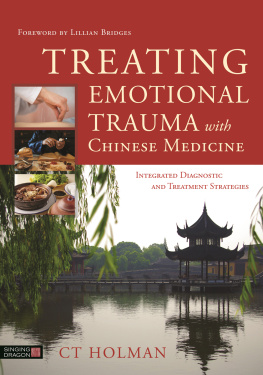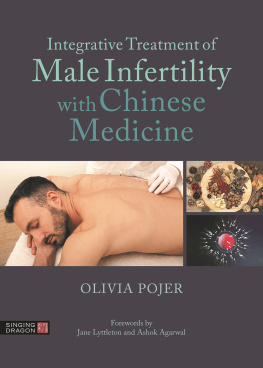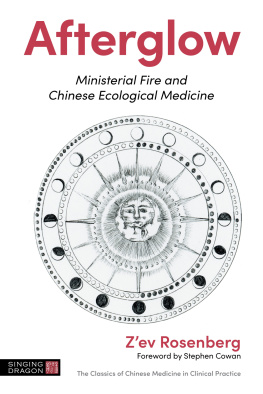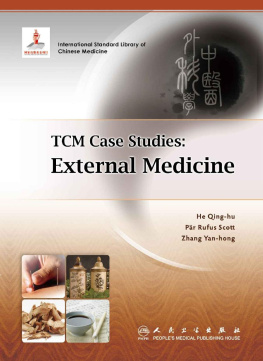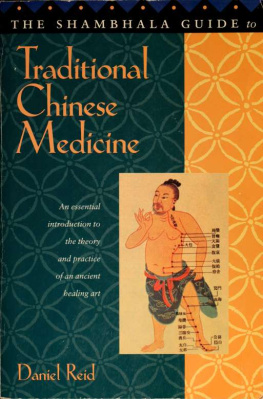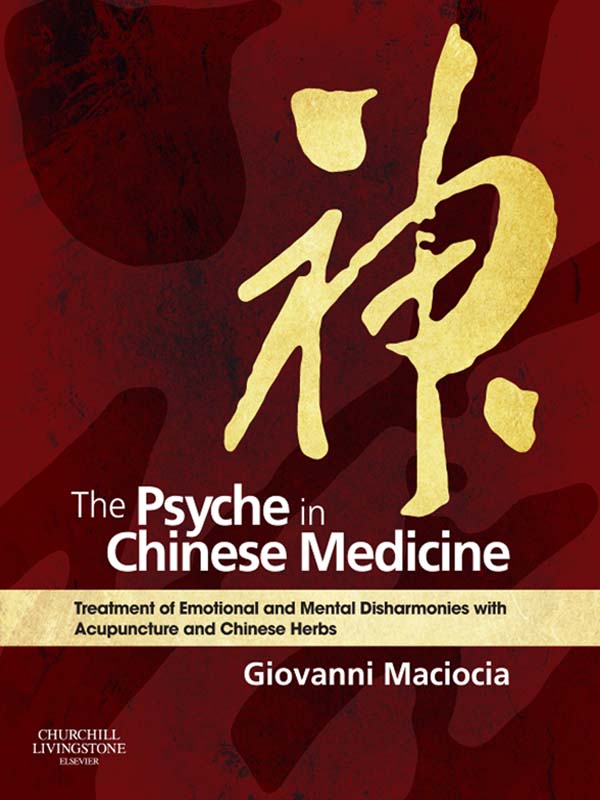The Psyche in Chinese Medicine
Treatment of Emotional and Mental Disharmonies with Acupuncture and Chinese Herbs
First Edition
Giovanni Maciocia, CAc (Nanjing)
Acupuncturist and Medical Herbalist, UK; Visiting Associate Professor at the Nanjing University of Traditional Chinese Medicine, Nanjing, Peoples Republic of China
Elsevier Inc.
Copyright Page
The right of Giovanni Maciocia to be identified as author of this work has been asserted by him in accordance with the Copyright, Designs and Patents Act 1988
.
ISBN: 978-0-7020-2988-2
British Library Cataloguing in Publication Data
A catalogue record for this book is available from the British Library
Library of Congress Cataloging in Publication Data
A catalog record for this book is available from the Library of Congress
Notice
Knowledge and best practice in this field are constantly changing. As new research and experience broaden our knowledge, changes in practice, treatment and drug therapy may become necessary or appropriate. Readers are advised to check the most current information provided (i) on procedures featured or (ii) by the manufacturer of each product to be administered, to verify the recommended dose or formula, the method and duration of administration, and contraindications. It is the responsibility of the practitioner, relying on their own experience and knowledge of the patient, to make diagnoses, to determine dosages and the best treatment for each individual patient, and to take all appropriate safety precautions. To the fullest extent of the law, neither the Publisher nor the Author assumes any liability for any injury and/or damage to persons or property arising out of or related to any use of the material contained in this book.
The Publisher
Printed in China
FOREWORD
For many Westerners encountering Chinese medicine, one of the great attractions is that it appears to address the whole person, seamlessly integrating body, mind and spirit within its understanding of human health and disease. This is considered to be in stark contrast to a Western view which, for various reasons, has tended to separate the material from the emotional and spiritual, especially since the 17th century. Even as far back as the 4th century BCE, Plato was complaining, The greatest mistake in the treatment of diseases is that there are physicians for the body and physicians for the soul, although the two cannot be separated.
So strong has been the attraction of this integrated Chinese perspective that it has been the primary factor motivating many individuals to study and practice Chinese medicine. And even more, it has led to schools of thought within the new Western traditions of Chinese medicine which consider addressing the emotional and even spiritual dimensions of a patient to be a pre-requisite of healing, perhaps in the process according more obviously physical concerns a lesser significance.
There may indeed be some historical basis for this emphasis. Certainly in the teachings of yang sheng fa, the art of nourishing life, we find that training and regulating the mind and emotions is the starting point of health-promoting behavior.
), and even earlier in the Nei Ye (Inward Training), 4th century BCE, Those who keep their minds unimpaired within, Externally keep their bodies unimpaired.
This is reflected, also, in the Yellow Emperors Inner Classic theory of the heart as Emperor of the body. The heart houses the Shen and if the heart is strong and in harmony, then the other organs of the body performing their different official roles will naturally follow, in the same way that a wise Emperor was thought to ensure the well-being of the Empire.
Understanding the historical discussion of the Shen and its relationship to health and well-being is not, however, straightforward. As Giovanni Maciocia emphasizes throughout this book, when attempting to absorb the teachings and medical practices of a culture so distant in both geography and time, the first requisite is to understand what is actually being said when terms such as mind, will and spirit are used. Without this understanding, we risk imposing our own cultural and personal prejudices on what we read, study and teach.
What is meant, however, by classical discussions of the Shen , is only one of the many important questions this vital subject demands that we consider. To what degree can treatment, administered by another, help resolve our emotional or spiritual distress; to what degree do we consider that the content of the emotional landscape is the true measure of an individual; how should we try to manage (and teach our patients to manage) emotions; to what degree should we fully embrace and inhabit them and to what degree should we try to train and restrain them? These are all questions that relate both to our own personal development and to our ideas about our role as practitioners.
If we look at some of the traditional Chinese teachings on regulating the mind and emotions, we find the following advice from the great Daoist 7th century doctor Sun Si Miao:
To live long, people should take care not to worry too much, not to get too angry, not to get too sad, not to get too frightened, not to do too much, talk too much or laugh too much. One should not have too many desires nor face numerous upsetting conditions. All these are harmful to health.
How can we reconcile this seemingly arid denial of the emotions with our own belief in the health-giving richness of exploring, freeing and expressing these emotions?
In the culture we find ourselves in, reconciling these two perspectives can be a challenge both in our work with patients and in our own lives. It may be that as so often it is the harmonization of these seeming opposites that offers a solution. Quietening the mind and dwelling in the present allows us to connect with what is universal and withdraw from the peripheral, debilitating noise of what is emotionally unnecessary. At the same time, cultivating this deeper awareness allows us to feel and explore the truer currents of our emotional life. Perhaps in that way we can hold a vision of emotional health that is neither repressive nor self-indulgent.
In this essential work, Giovanni Maciocia has addressed all these important questions, whether in his detailed exploration of classical Chinese and classical and modern Western perspectives, his thorough exposition of the most common and distressing manifestations of emotional disorder, and his personal reflections on his own extensive clinical experience. This book will add significantly to the body of work that, through unremitting authorship over decades, Giovanni Maciocia has been compiling on the theory and practice of this human treasure, Chinese medicine.
Peter Deadman, 2009
PREFACE
The seeds for the writing of this book were planted 35 years ago when I first started practicing acupuncture. I can say that not a day went by in my practice that I did not question the nature of


